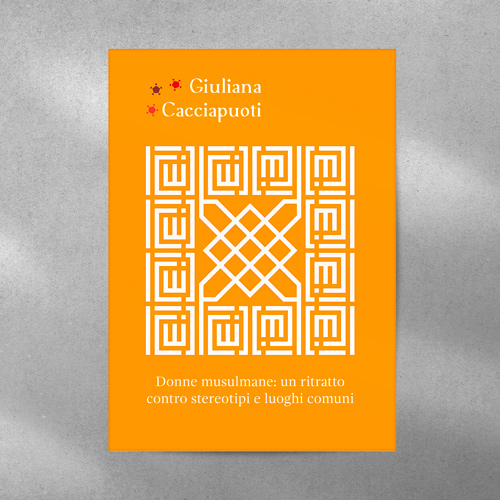Donne musulmane: un ritratto contro stereotipi e luoghi comuni

Un testo in cui si raccontano, con semplicità, aspetti della vita delle donne musulmane. Una realtà complessa, diversificata e globalizzata che affonda le sue radici e si confronta con la tradizione storica e religiosa dei primi secoli dell’islam. Un viaggio tra passato e presente, stereotipi e pregiudizi, modernità e cambiamenti, la lunga battaglia per il riconoscimento dei diritti e del ruolo nella società senza dimenticare aspetti importanti nella vita delle donne, la famiglia, il lavoro e lo spazio nella sfera pubblica. “Donne musulmane: un ritratto contro stereotipi e luoghi comuni” è un incontro intenso, narrato con passione e rispetto, con un pizzico di vis polemica e un tocco di leggerezza tra stili, veli e moda islamica.
ISBN code - 9791221016017 | Fyle Format - PDF | pages - 129 | Title - Donne musulmane: un ritratto contro stereotipi e luoghi comuni by Giuliana Cacciapuoti.
“Muslim women: a portrait against stereotypes and clichés"
Telling aspects of Muslim women's lives with simplicity. A complex, diverse
and globalised reality rooted in and confronted with the historical and religious
tradition of the first centuries of Islam. Past and present, stereotypes and
prejudices, modernity and change, the long struggle for recognition of rights
and role in society, without forgetting important aspects of women's lives,
family, work and space in the public sphere. "Muslim women: a portrait
against stereotypes and clichés" is a well-meaning encounter, narrated with
passion and respect, with a pinch of polemical vis and a touch of lightness
between veiled styles and Islamic fashion.
The text is aimed at an interested but non-expert audience without delving
into technicalities and academic speculations. The popular intent is supported
by an apparatus of notes through which information is provided and texts and
articles are indicated for further study.
Let’s start reading...
Foreword
Those who attend meetings and lectures dedicated to knowledge of and
relations with the Muslim world often arrive there with ideas and
considerations that are the product of the collective imagination. This is
substantiated through a process of synthesising information learnt from the
media - news gleaned from magazines, social media, talk shows and
television series - to which is sometimes added a smattering of personal
studies, experiences and readings. A mixture filtered through one's own scale
of values and cultural, political, ideological background. The end result
oscillates between fascination, bewilderment, distancing, disapproval and
incomprehension, to the point of open hostility towards a system of life that
appears opposed to our own. In such a context, it becomes complicated to
recount the Islamic world with criteria of reality. It is even more difficult to
present the Muslim world to women. An ambiguous relationship is woven
between women's achievements, experiences, stories and struggles -
personal and collective - aimed at obtaining rights and emancipation in the
two worlds: the Western and the Muslim. The aim of this publication is to tell
the story of Islam from the female point of view, unveiling stereotypes,
unhinging prejudices and overcoming fences erected, at times, even
unconsciously. What is intended is to divulge
and clarify without making value judgements and without drawing a rigid
dividing line between 'pro and versus' that divides customs, choices and
beliefs into the 'best' and 'worst' categories. The tools of knowledge and
scientific study of the main disciplines of Arab-Islamic culture, together with
the direct reading of religious, historical and legal sources, accompanied by
forty years of experience in the field through academic activity and research
in a long and rich professional career, are brought together in this text to
provide elements of knowledge and understanding.
Readers are presented with a text designed to make it easy - but not simple -
to understand the complexity of the Islamic world as seen from the side of
women. A work that adopts the women's point of view by turning its gaze
from East to West.
The idea arose from the perception of an unexpressed question, the
recognition of the need for analytical tools to help go beyond an implicit,
hidden if not unconscious thought. Answering the questions that I have been
asked most frequently over the years, clarifying without making a value
judgement - neither just nor unjust - is what I propose to do in these pages.
Inevitably, cultural attitudes, legacies, stratified and hidden influences in
thought that are the product of mindsets, ideas and images resurface in every
person. European and Western colonialism, in its consideration of other
cultural models, has always pointed to women's subordinate status in other
cultures as a clear sign of inferiority, this is particularly true of Islam, which
counts the use of the veil and the segregation of women among its marked
and visible distinctive cultural signs. Elaborating a reflection on Muslim
women, with their just demands for autonomy, independence and self-
assertion, does not elide adherence to the Islamic culture, tradition and
identity.It is too easily forgotten that the main protagonists of the battles and
struggles for human rights in the world of Islam are and remain Muslims.
They criticise and denounce the distortions of oppressive and dictatorial
regimes without renouncing their own cultural and religious universe: by virtue
of Islam's principle of equality, they fight their battles, pointing out the
pressure and contradiction of Islamic laws that could and should protect
them, and highlighting the extent to which customary laws, local and tribal
traditions condemn them to invisibility. The reflection, which we would like to
become collective, concerns the transversality of a phenomenon: the
persistence of patriarchal models. In every hemisphere where the male
universe dominates, a life of limitations and oppression has been imposed on
women. Wherever there is a law in force that excludes them from the public
sphere, from the 'polis', they remain - as Nawal es- Sadawi, an Egyptian
feminist, puts it - invisible because "...men neither veil nor undress" .

















